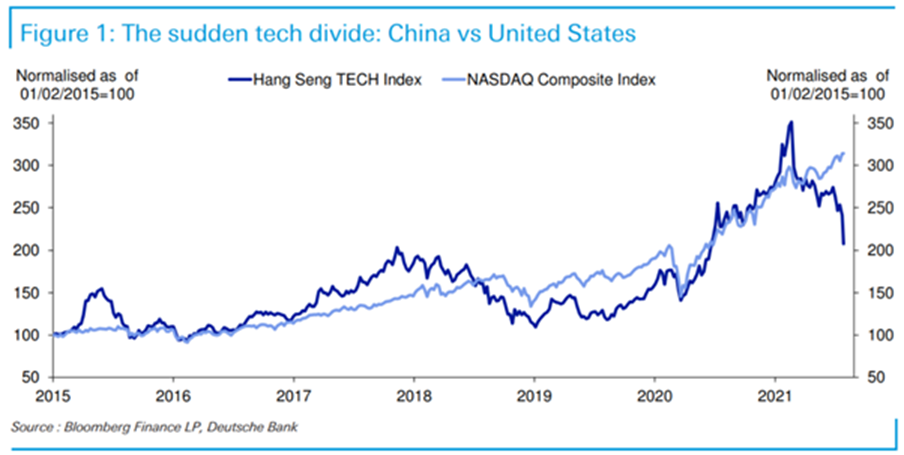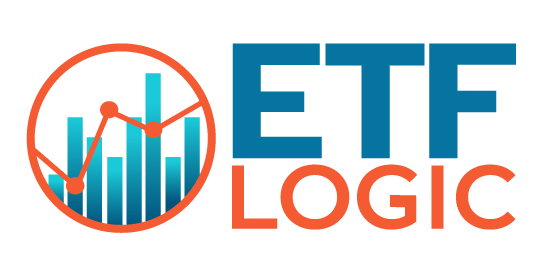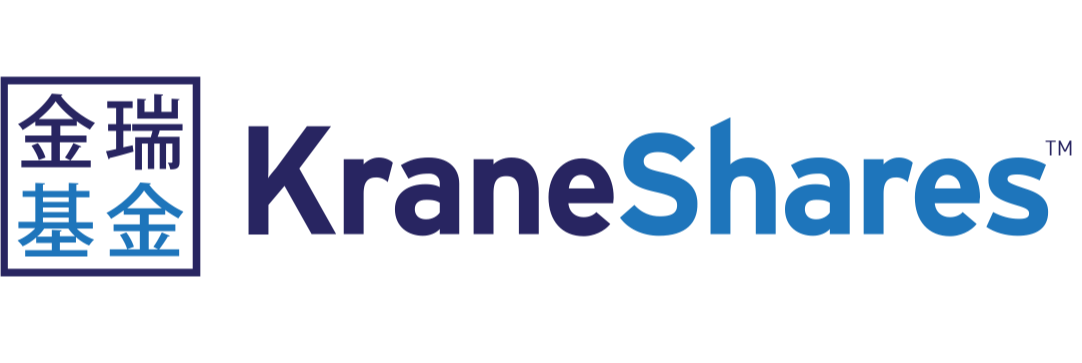The six-month drawdown in Chinese tech ETFs intensified in recent days as more state interference inspired double-digit losses.
Worries of capital flight defined the three sessions following a ‘leaked’ media report on Friday citing government plans to prevent private tutoring companies from collecting profits, raising funds from stock markets or accepting foreign investment in any form.
With a raft of new measures being confirmed on Saturday, 2020 digital learning winners such as TAL Ed Group, New Oriental Education and Tech Group, and Gaotu Techedu were all down between 68% and 78% from Friday to Tuesday.
This has not only had an impact on those long on Chinese education tech, such as Tiger Global, Temasek and SoftBank, but also the 11-month-old Rize Education Tech and Digital Learning UCITS ETF (LERN), which has returned -38% so far this year, as at 27 July, according to data from ETFLogic, the worst performance across all European-listed ETFs.
It has also redoubled the fears of China’s already-nervous consumer software giants, which needed little excuse to spiral further after a rough start to the year.
Despite many emerging market fund managers retaining an optimistic stance on Chinese tech, behemoths such as Tencent, Alibaba, Meituan, Pinduoduo and Baidu have seen their valuations cut between 28%-52% over the past six months.
Reflecting this fall from grace are the ETFs offering exposure to Sino tech such as the KraneShares CSI China Internet UCITS ETF (KWEB) and the EMQQ Emerging Markets Internet and Ecommerce UCITS ETF (EMQQ) which have plummeted 43.3% and 26% since February, respectively.
Not a new house of cards
While many would contend the stumbling blocks for this recent drawdown go as far back as the Chinese Communist Party’s (CCP) predilection for centralised economic management, this particular epoch of tension can perhaps be traced back to last year.
Some were already questioning the party’s relationship with the country’s big tech players with Alibaba figurehead Jack Ma openly speaking out against the state on numerous occasions, while Tencent CEO Pony Ma took a more pragmatic approach, providing access to his company’s social media data while attempting to allay state fears about the impact of gaming on Chinese youngsters.
The touch paper was lit last November, however, as Alibaba subsidiary, Ant Group, had its potentially record-breaking IPO cancelled by regulators.
This was followed by Ma disappearing from public view for weeks while the CCP added insult to injury by hitting the firm with a multi-billion-dollar antitrust fine, dismantling Ant and deleting Alibaba’s web browser from app stores.
In recent months, regulators have disciplined and ‘rectified’ others including ByteDance, Baidu and Didi with the latter most recently sanctioned for acting in breach of national security interests by joining its peers in listing its shares in the US.
Tensions between the CCP and consumer-facing tech platforms appear to escalate when firms perform one of three transgressions: becoming powerful enough to invite questions about state authority, undermining the focus on domestic growth with overseas IPOs, and channelling capital and talent into sectors the CCP finds at odds with its strategic vision of maximum productivity.
The result of this public-private civil war is $769bn in value being erased from US-listed Chinese stocks in five months, the Nasdaq Golden Dragon China index falling 49% since its high in February and a large rift opening between tech-focused indices in the US and China.

Rare opportunity or reminder of unacceptable risk?
Dr. Xiaolin Chen, head of international at KraneShares, recounted what famous economist, Dr Henry Kissinger, had said at a company event in New York: that the CCP have essentially promised the Chinese people increasing prosperity in return for fealty to the one-party system, and therefore they have a strong incentive to protect the country’s economic interests.
Chen told ETF Stream the current regulatory tightening is an extension of this.
“While the markets are reacting negativelynow, the policy is geared toward ensuring long-term growth and stability.
“Policy in China can happen fast and can disregard certain stakeholders,” Chen added. “This can create short term pain for investors whichmay lead to long term gains as the benefits of reforms take hold.”
Offering support for this claim, Chen pointed to the restructuring of China’s healthcare sector between 2018 and 2019. While system changes such as reducing the cost of generic drugs were to the short-term detriment of company valuations – with the MSCI China Healthcare index down 35% in eight months – their legacy was a more innovative biotechnology industry, Chen said, with the MSCI index returning 104% over the next 30 months.
Perth Tolle, founder of Life + Liberty Indexes – which currently exclude Sino equities because of state oversight – offered a more sceptical view.
“As far as CCP agenda is concerned, a total lack of transparency means no one can truly know,” Tolle said. “Autocrats cannot predict the future; otherwise central planning would have worked better.”
In Tolle’s view, regulators are merely responding to perceived threats to their power and the only certainty available to investors is their interests will always be secondary to those of the state.
“Every company, every industry in China is subject to the risks we are seeing now,” she continued. “The biggest companies will be perceived to be the biggest threat – so EM index investors in market cap weighted China-heavy strategies are at the greatest risk.”
Nigel Green, chief executive and founder of deVere Group, echoed these concerns: “It can be expected that some investors will swoop in and view these events as a major buying opportunity; as a chance to top-up their portfolios within the booming Chinese economy.
“However, they must exercise extreme caution as the situation remains highly unpredictable and any further similar actions – or even suggestions – from Beijing will mean more, sustained volatility and sell-offs.”
Undeterred, Chen said the CCP’s current Five Year Plan gives priority status to developing the digital economy, and that new regulations on internet and commerce segments are not only likely to promote sustainable growth but are comparable to policies already introduced in the US and Europe such as the General Data Protection Regulation (GDPR).
Chen also argued new rules will foster fairer competition and regulatory clarity with China’s tech firms now currently undervalued due to a misconception that all regulation is made equal.

“We understand the fear and doubt mounting from international investors,” Chen said. “The pace and scale with which recent reforms were introduced and implemented has been tremendous. However, China is no stranger to delivering such reforms.”
One shift Chen noted is the state will likely put an emphasis on tech subsectors it sees as fostering its strategic interest in long-term growth and productivity. These tend to be more hardware-related, including AI and robotics to tackle the country’s ageing workforce, 5G technology and semiconductors to increase tech bandwidth self-reliance, and electric vehicles and green technologies to tackle its pollution concerns.
What is certain is regulators and investors alike have made a concerted effort to harness the growing influence of the Chinese consumer – with more than 1.24 billion citizens aged 15 or older and a continually expanding middle class.
Something less certain is whether consumer-facing, software-based tech giants are the central and immutable component of the CCP’s plans to develop China’s domestic economy.





